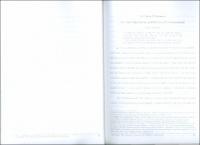Please use this identifier to cite or link to this item:
https://hdl.handle.net/20.500.12202/8949| Title: | The limits of tolerance: Jews, the Enlightenment, and the fear of premature burial |
| Authors: | Freedman, Jeffrey |
| Keywords: | Jewish burial Jewish ritual Jewish reform burial societies |
| Issue Date: | 2017 |
| Publisher: | Yeshiva University |
| Citation: | Freedman, J. (2017). The limits of tolerance: Jews, the Enlightenment, and the fear of premature burial. Chronos, 69-94. |
| Series/Report no.: | Chronos;2016-2017 |
| Abstract: | ln 1798, a little-known German journal, the Schlesische Provinzialblätter, published a report about a case of narrowly averted tragedy. It concerned a young Jewish boy in Breslau who had been pronounced dead 11 November of the previous year. Actually, the boy was not dead, he only seemed to be, and since Jewish ritual required rapid burial-within twenty-four hours at the latest unless the Sabbath intervened-he was at great peril of being buried alive. He escaped that fate because the misdiagnosis of death occurred late in the afternoon-too late in the afternoon to permit a burial before nightfall. The burial had to be postponed until the following morningg, and by then, the boy was showing signs of life. Had it not been for the late hour of his apparent demise, it is quite possible that he would have awakened to find himself entombed beneath the earth. Instead, he awoke, as if after a long sleep, in his bed.1 |
| Description: | Scholarly article |
| URI: | https://hdl.handle.net/20.500.12202/8949 |
| Appears in Collections: | Yeshiva College: Faculty Publications |
Files in This Item:
| File | Description | Size | Format | |
|---|---|---|---|---|
| Freedman 2017 Limits of tolerance Chronos 69ff.pdf | 3.65 MB | Adobe PDF |  View/Open |
This item is licensed under a Creative Commons License

